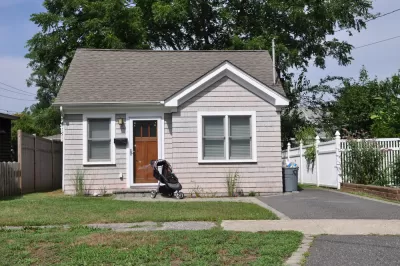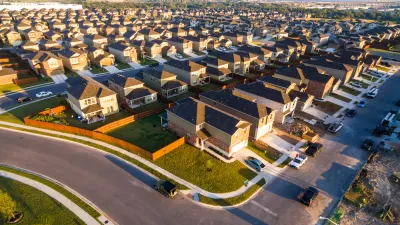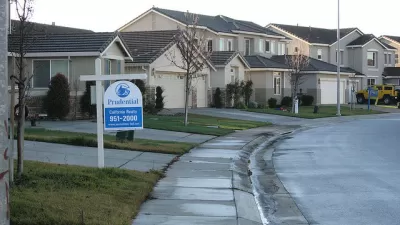With so many institutional investors buying homes, it's hard for first-time homebuyers to find space in the housing market.

Ben Casselman and Conor Daugherty write of "exploding investor interest" in starter homes. All that Wall Street capital flooding into the real estate market could make buying a home for the first time much more difficult than it already is.
Starting with a very specific example in Atlanta, before zooming out the city as a whole, the article connects the Atlanta case study to the rest of the country:
A confluence of factors — rising construction costs, restrictive zoning rules and shifting consumer preferences, among others — has already led to a scarcity of affordably priced housing in many big cities. Investors, fueled by Wall Street capital, are snapping up much of what remains.
According to Casselman and Daugherty, the post-Recession real estate activites of institutional investors was expected to dry up with the bargain prices brought about by the foreclosure crisis.
Except they didn’t stop. Last year, investors bought about one in five starter homes in the United States (defined as priced in the bottom third of the local market), according to CoreLogic. That was even higher than in the early years after the Great Recession and about double the level of two decades ago. In the most frenzied markets, investors bought close to half of the most affordable homes sold last year, and as much as a quarter of all single-family homes.
These investors take many forms, and also choose many courses of actions once they have their hands on residential properties. Some flip the properties, like the old days before the Recession, and other rent them out on Airbnb and the like.
Meanwhile, young people are denied chances to enter the market and existing residents are prices out of their neighborhoods.
What is happening in Atlanta is partly a familiar story of gentrification pushing up prices and driving out longtime residents. But those trends are being spurred by a fast-growing industry that promotes investment in single-family homes: lenders who provide the capital, brokers who handle transactions, wholesalers who buy homes by the dozens and sell them before they even take possession.
FULL STORY: Want a House Like This? Prepare for a Bidding War With Investors

Alabama: Trump Terminates Settlements for Black Communities Harmed By Raw Sewage
Trump deemed the landmark civil rights agreement “illegal DEI and environmental justice policy.”

Planetizen Federal Action Tracker
A weekly monitor of how Trump’s orders and actions are impacting planners and planning in America.

Why Should We Subsidize Public Transportation?
Many public transit agencies face financial stress due to rising costs, declining fare revenue, and declining subsidies. Transit advocates must provide a strong business case for increasing public transit funding.

Understanding Road Diets
An explainer from Momentum highlights the advantages of reducing vehicle lanes in favor of more bike, transit, and pedestrian infrastructure.

New California Law Regulates Warehouse Pollution
A new law tightens building and emissions regulations for large distribution warehouses to mitigate air pollution and traffic in surrounding communities.

Phoenix Announces Opening Date for Light Rail Extension
The South Central extension will connect South Phoenix to downtown and other major hubs starting on June 7.
Urban Design for Planners 1: Software Tools
This six-course series explores essential urban design concepts using open source software and equips planners with the tools they need to participate fully in the urban design process.
Planning for Universal Design
Learn the tools for implementing Universal Design in planning regulations.
Caltrans
Smith Gee Studio
Institute for Housing and Urban Development Studies (IHS)
City of Grandview
Harvard GSD Executive Education
Toledo-Lucas County Plan Commissions
Salt Lake City
NYU Wagner Graduate School of Public Service




























